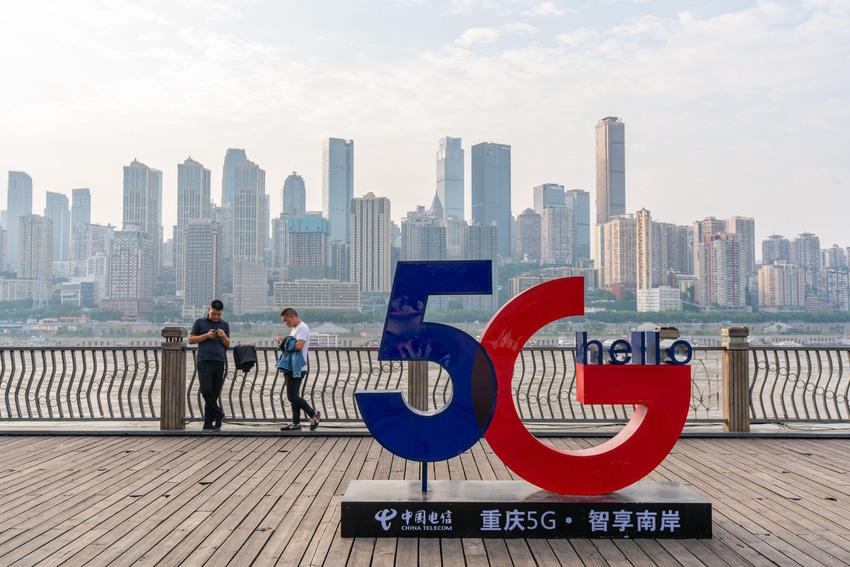
According to Ookla's newest data, the gap between 5G and fixed broadband networks in the US is narrowing, at least in terms of customers' download speeds.
Specifically, the Speedtest company said T-Mobile offered median 5G download speeds in the third quarter of 221.57 Mbit/s. That's pretty close to the median download speed that Cox offered its fixed broadband customers during the same period: 260.09 Mbit/s.
The firm said T-Mobile offered the nation's fastest 5G network, and that Cox offered the nation's fastest fixed broadband service.
Meaning, the speeds offered by the nation's fastest 5G network are approaching the speeds that Ookla clocked on what it said was the nation's fastest fixed broadband network.
To be clear, there are plenty of caveats to the firm's findings. Ookla primarily collects data via users of its Speedtest app. Thus, the company's results represent customers' real-world experiences and not the theoretical limit of T-Mobile's 5G network or Cox's cable network.
That's an important distinction because T-Mobile generally offers its customers the fastest possible connection it can provide. But Cox's services are tiered – for example, its 100 Mbit/s service costs around $50 per month, while its 1 Gbit/s service costs $110 per month. Thus, it's likely that Ookla's fixed broadband findings reflect the fact that Cox's most popular plan is its 250 Mbit/s service for $70 per month, given that the company's median speed among Speedtest users is 260.09 Mbit/s.
Regardless, the figures show that the speeds available on the nation's fastest 5G network are within spitting distance of the speeds that most customers are receiving on Cox's network. However, customers on T-Mobile's 5G network cannot pay for faster speeds as they can on Cox's network.
5G speeds on the rise
In general, Ookla reported that speeds are increasing on mobile networks in general and on 5G connections specifically. T-Mobile topped the company's rankings of 5G connection speeds. Verizon came in second with 153.79 Mbit/s speeds in the third quarter, while AT&T was in third place with 101.55 Mbit/s speeds. The firm said T-Mobile's speeds are roughly in line with what it recorded in the second quarter, but that both Verizon and AT&T showed significant increases in their 5G download speeds over the prior quarter.
That finding isn't necessarily a surprise because all three companies have been rushing to add more midband spectrum to their 5G networks. Such spectrum has allowed 5G operators around the world to dramatically increase their speeds. After all, the amount of spectrum employed in a wireless network is directly related to the speeds and capacity available in that network.
Ookla, in its findings, also recorded a few other notable metrics on mobile networks in the US.
For example, the firm said T-Mobile had the fastest median upload speed among top mobile operators in the US at 11.31 Mbit/s during the third quarter. The firm said Verizon was second and AT&T was third. Those figures are far below the upload speeds Ookla recorded on fixed networks.
Ookla also calculated mobile operators' "median multi-server latency" on their respective mobile networks. It found that T-Mobile had the lowest multi-server latency at 53 ms. Verizon was a close second at 59 ms and AT&T was third at 66 ms. "As latency becomes an increasingly important measure, we'll be sure to watch latency metrics closely," the firm wrote. Latency is generally the time it takes for a user's Internet request to be answered, and a lower latency score reflects a snappier network experience.
To be clear, Ookla is one of a handful of companies that track wireless networking experiences. And reports from those companies are not conclusive. For example, Verizon often touts findings from RootMetrics, which show that its wireless network provides the best performance, accessibility and reliability. But last year, GWS said Verizon and AT&T tied for the best mobile network.
Broadly, mobile network performance is ultimately due to a variety of factors, including a user's distance from a transmission site, the number of nearby users, the amount of spectrum used in the network and other factors. And those elements can all change dramatically from one geographic location to another.
Read more about:
OoklaAbout the Author(s)
You May Also Like












